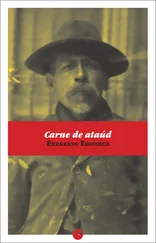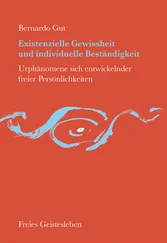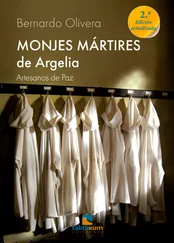Bernardo Atxaga - Obabakoak
Здесь есть возможность читать онлайн «Bernardo Atxaga - Obabakoak» весь текст электронной книги совершенно бесплатно (целиком полную версию без сокращений). В некоторых случаях можно слушать аудио, скачать через торрент в формате fb2 и присутствует краткое содержание. Год выпуска: 2010, Издательство: Graywolf Press, Жанр: Современная проза, на английском языке. Описание произведения, (предисловие) а так же отзывы посетителей доступны на портале библиотеки ЛибКат.
- Название:Obabakoak
- Автор:
- Издательство:Graywolf Press
- Жанр:
- Год:2010
- ISBN:нет данных
- Рейтинг книги:3 / 5. Голосов: 1
-
Избранное:Добавить в избранное
- Отзывы:
-
Ваша оценка:
- 60
- 1
- 2
- 3
- 4
- 5
Obabakoak: краткое содержание, описание и аннотация
Предлагаем к чтению аннотацию, описание, краткое содержание или предисловие (зависит от того, что написал сам автор книги «Obabakoak»). Если вы не нашли необходимую информацию о книге — напишите в комментариях, мы постараемся отыскать её.
Obabakoak
The Observer
Obabakoak — читать онлайн бесплатно полную книгу (весь текст) целиком
Ниже представлен текст книги, разбитый по страницам. Система сохранения места последней прочитанной страницы, позволяет с удобством читать онлайн бесплатно книгу «Obabakoak», без необходимости каждый раз заново искать на чём Вы остановились. Поставьте закладку, и сможете в любой момент перейти на страницу, на которой закончили чтение.
Интервал:
Закладка:
And it is that word that puts all the others on their guard and a noise, like the one you might hear on opening the doors of a drawing class, fills the whole room. After a short while, another word appears in your right hand. Ah, my friend, all unwitting you have become a magician. The second word grabs the pen shaft, slides down it, leaps on to the nib, and scrawls something in ink. The scrawl says: hands.
Just as if you were opening a surprise packet, pull the end of that thread (forgive me if I seem overfamiliar, we are fellow travelers after all), as I was saying, pull the end of that thread as if you were opening a surprise packet. Then greet the new landscape, the new sentence that comes wrapped in a parenthesis: (Yes, I covered my face with this dense net the day my hands got burned.)
Three minutes have just passed. But behold you have barely written down the previous sentence when many more sentences, many, many more, come to you like moths drawn to the flame of a gas lamp. You have to choose, it’s painful, but you have to choose. So, think hard and open the new parenthesis: (People felt sorry for me. They felt sorry, above all, because they thought my face must have been burned too; and I was convinced that the secret made me superior to them all and mocked their morbid curiosity.)
You still have two minutes. You don’t need the dictionary now, don’t waste any more time looking up words. Pay attention to your own inner fission, to the contagious verbal sickness that grows and grows in you and will not stop. Quickly, please, write down the third sentence: (They know that I was beautiful once and that every day twelve men would send me flowers.)
Now write down the fourth sentence as well, which comes treading hard on the heels of the previous one and says: (One of those men deliberately burned his face, thinking that this would put us on a level, place us in the same, painful situation. He wrote me a letter saying: Now we are equal, take my action as a proof of my love.)
And the last minute is just beginning to empty itself out when you are already in the middle of the penultimate sentence: (I wept bitterly for many nights. I wept for my own pride and for my lover’s humility; I thought that, to be absolutely fair, I should do the same, I should burn my face too.)
You have to write the last part in less than forty seconds, time is running out: (If I did not do so it was not because I feared the physical suffering involved nor out of any other fear, but because I understood that a loving relationship that began with such a display of strength would, necessarily, have a far more prosaic ending. On the other hand, I could not let him know my secret, it would have been too cruel. That’s why I went to his house tonight. He too had covered his face with a veil. I offered him my breasts and we made love in silence; he was happy when I plunged this knife into his heart. And now all that remains for me is to weep for my own ill fortune.)
And close the parenthesis — thus ending the story — just as the last grain of sand drops into the bottom of the hourglass.
Klaus Hanhn
IT WAS THE SECOND DAY to dawn in the month of September, a Monday, and Klaus Hanhn opened his eyes surprised to find that the three alarm clocks lined up on the carpet in his bedroom had just gone off, one after another, each one ringing out and demanding, as they always did, that he get up, get up, and go to work, as soon as possible.
The clocks told him that it was five fifteen in the morning. The message was strident and unpleasant.
As soon as he was fully conscious of his situation, Klaus Hanhn gave an angry sigh and closed his eyes again. There was no reason for the clocks to have woken him, not on that Monday, not on that second day of September. For that was the day he had chosen as the day on which he would Change His Life; it was both the day of his forty-seventh birthday and the day on which his Great New Era was to begin. No, the three clocks that he usually needed to rouse him from his leaden slumbers had not gone off because he wanted them to. They had done so only because of some aberration on his part the night before.
He drew his hands out from under the sheets and, without bothering to switch on the light, groped for the clocks on the carpet. But no sooner had he turned the first one off than he gave up and lay back in bed again. In fact, it rather suited him to listen to the clamor. It highlighted this moment he was living through, it made him more intensely aware of the nature — the good nature, of course — of the New Era he had just entered upon. Let them ring and clatter out the warning that it was five fifteen in the morning, that, however sleepy he felt, he had no alternative but to go to work. What did he care? He was no longer in their sway. Let them ring. He was not going to obey, not now or ever again.
“Who’s going to stop you staying in bed, Klaus?” asked his little brother, Alexander, from inside. Alexander was dead, or at least that was what they’d told him: that he’d been dead for many years, that he’d drowned among the reeds of the River Elbe when they’d gone on a trip there with their schoolfellows. But he didn’t believe them. He knew that Alexander had simply changed places. Ever since that day he had been not outside, but inside, and from time to time he spoke to him, especially at moments of importance. It filled him with joy to hear his brother’s childish voice and he almost always followed his advice. Because he loved him very much, very, very much.
“No one, Alexander. No one can,” he replied, smiling. Then he turned over and went back to sleep.
Some hours later, when the sun shone directly into his eyes and woke him from that second sleep, he felt full of contradictory feelings, sudden as the onset of palpitations. He felt excited and happy, because the manner of his waking confirmed the reality of his changed life; but, unfortunately, there was fear there too. A vague, dull fear that might well go on growing throughout the day, little by little, the way a headache grows until it becomes intolerable. What would the future bring? Would it give him everything he needed? He had no way of knowing and his brother, Alexander, didn’t have the answer either. But, despite that, he tended to the belief that all the work of the previous months would bear fruit. The important thing was not to allow himself to succumb to fear. It was the morning of the second of September. Another twenty-four hours and he would be out of danger.
Klaus Hanhn raised the blind and saw that the sky on this his Decisive Day was cloudless. It was a good sign. After white, his favorite color was blue.
“Klaus Hanhn?” he asked, leaving his bedroom and walking into the middle of the living room.
The large mirror there framed him completely, from head to foot. It was oval in shape and could be inclined forward or backward by means of a wooden hinge. That morning it was inclined forward making Klaus look rather smaller than he really was.
The image nodded, smiling.
“Well, in that case, many congratulations,” he said, bowing.
The figure in the mirror hurriedly returned his bow and then stood there looking at him, direct, serious, searching. Yes, there was no doubt about it, he was forty-seven years old. The wrinkles told him he was, the deep lines on his forehead told him, his very expression told him. And, on reflection, it seemed absurd, it was very difficult to fit all those years into the anagram of his life. For where were the events to fill up all that time? He couldn’t find them and even Alexander was not much help in that particular enterprise, since his brother — a mere child, after all — knew nothing of the passing of time. But, despite that, there was no denying the facts. He was forty-seven years old. Perhaps it was too late to change his life.
Читать дальшеИнтервал:
Закладка:
Похожие книги на «Obabakoak»
Представляем Вашему вниманию похожие книги на «Obabakoak» списком для выбора. Мы отобрали схожую по названию и смыслу литературу в надежде предоставить читателям больше вариантов отыскать новые, интересные, ещё непрочитанные произведения.
Обсуждение, отзывы о книге «Obabakoak» и просто собственные мнения читателей. Оставьте ваши комментарии, напишите, что Вы думаете о произведении, его смысле или главных героях. Укажите что конкретно понравилось, а что нет, и почему Вы так считаете.











